Brittany Snow praises "incredible" Yellowjackets star Courtney Eaton
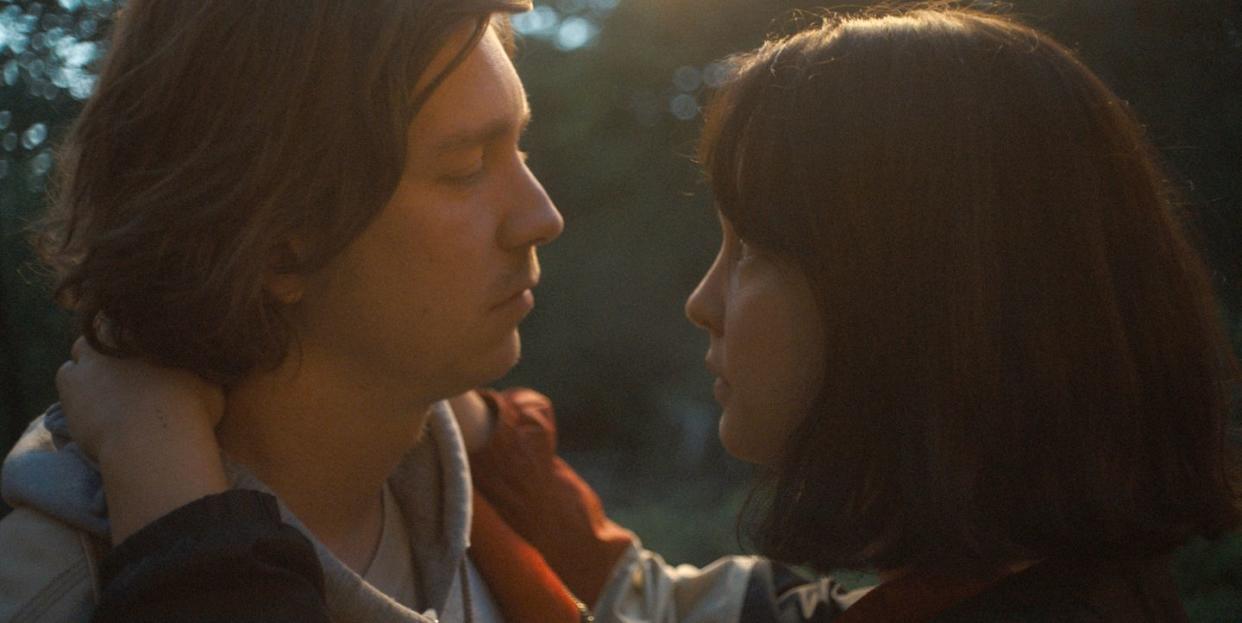
Note: The following article contains discussion of eating disorders and body dysmorphia.
Brittany Snow might be best known for her role as Chloe in the Pitch Perfect trilogy, but after you've seen her feature directorial debut Parachute, you'll forget all about her a cappella roots.
The new movie, which is out now in limited US cinemas, is a powerful, intimate and affecting portrayal of a young woman living with an eating disorder.
But this isn't just your standard addiction drama; it's actually more of a romcom for the most part. Riley (Courtney Eaton) is fresh out of a treatment clinic when she meets Ethan (Thomas Mann) at a karaoke bar, sparking a relationship that Parachute charts over several years.
Digital Spy sat down with Brittany Snow to talk about her personal connection to the story, casting Courtney Eaton in her biggest movie role yet and what she hopes viewers get from Parachute.
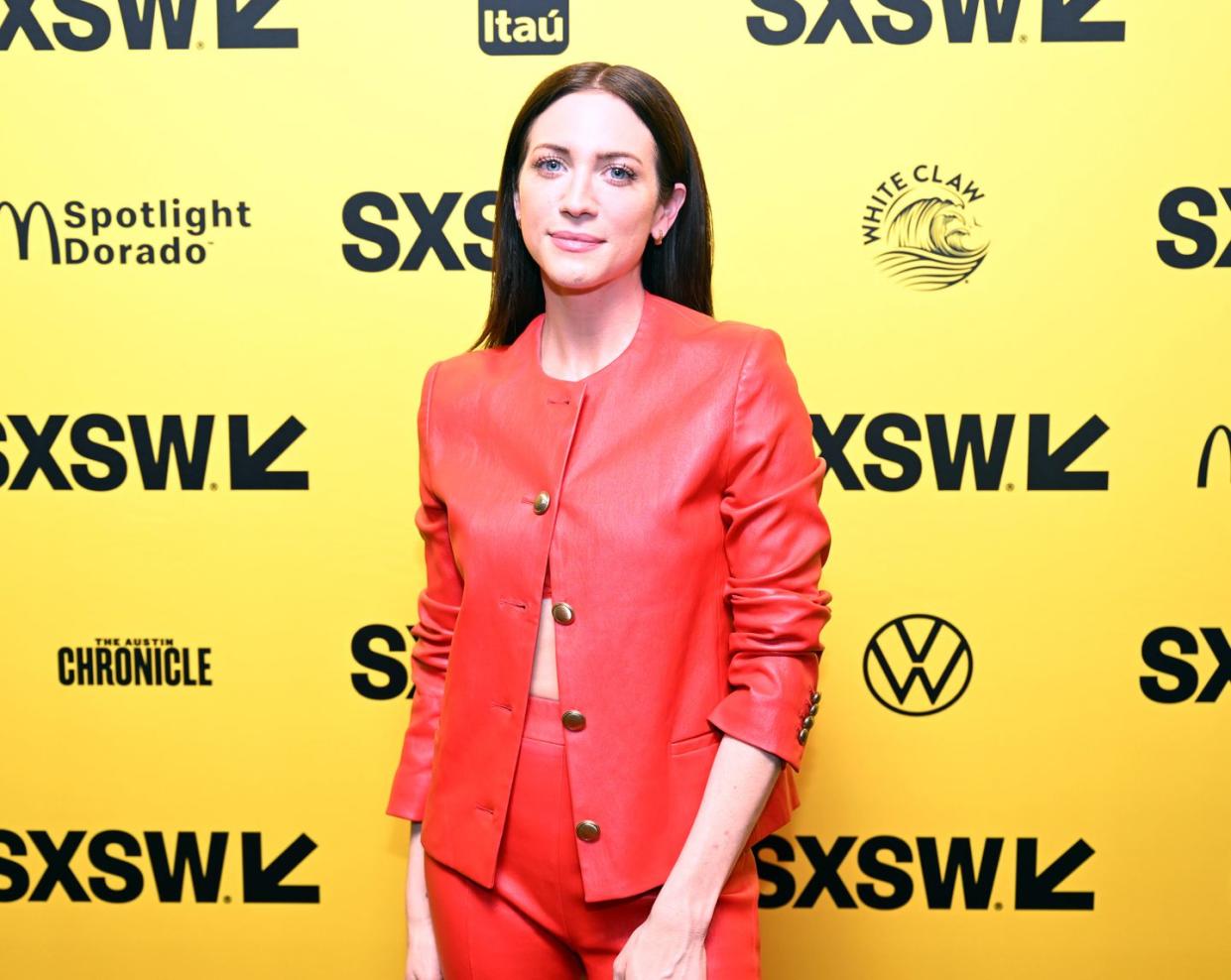
You had done a short film before [Milkshake], so was there a particular lesson you took from that experience into making your feature debut?
Brittany Snow: I definitely learned a lot from doing the short film because I also used my experience with writing that, and directing that as well. I would like to say that probably the next time I direct and write, it would be something that has nothing to do with me. But most likely not, as well.
There's a certain specificity to the style that I really appreciate when somebody is making something that feels really honest – and you can really feel that, and it comes across in whatever medium it is, a short or a feature.
I just tried, with every choice I made, with either the short or the feature, to ask myself the question: is this honest, and is this something that moves me?
Whether it's where I put the camera, or whether it's a note I give the actors, or whether it's just a piece of production design. I think it has to be honest to me, not necessarily to my experience, but something that resonates honestly.
Has that become a gut instinct thing, that you just know straight away if something's not quite there?
That was what was really great about directing in general. I didn't know that I would have that gut instinct. And I think that's why I became so addicted to it, in a way; it's that I really did trust my gut, and the things that I trusted my gut with the most were the things that really worked out the best.
I think it's a skill because you get in your head a lot – or, at least, I do. So it's sort of not second-guessing yourself.
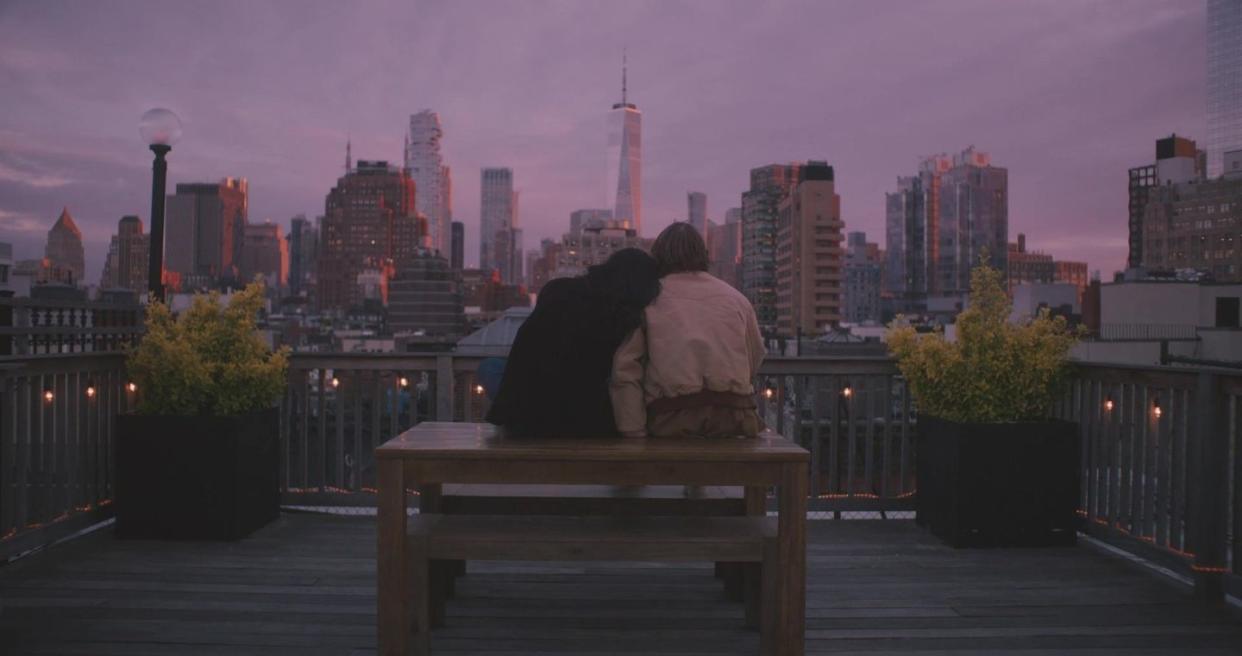
Did you always plan to direct a movie after making Milkshake?
I didn't. I wrote [Parachute], and wanted to have it be put out into the world. I didn't know that I was going to be directing it. I felt a long time ago that maybe I would be in it, but then the more I started writing it and taking it apart, I thought that it would be super-meta and also perhaps narcissistic of me to make a movie about myself in some way.
So I really liked giving it over to different people, and having their experiences mould the story as well. And it not only became a story that I had been through, but it also became so many peoples' story, whether it was the crew or the cast.
I didn't know that I was going to be so passionate about directing it. It took a really long time to get it made. With little indie movies like this, it really takes a lot of determination. It was about a five-year process before we actually started making it.
Was part of bringing other perspectives also why you co-wrote with Becca Gleason? How did that work in terms of collaboration?
What Becca generously did for me was create a first draft that had no addiction issues, no body issues, no eating disorder or addiction. There was no dad storyline. It was just a straight romcom that was linear.
I knew I didn't want to do that, but I wanted her to just have something on the page. And then I did drafts two through to 500, and I just turned it into something that I really wanted to write about it.
Luckily, Becca was very, very giving in the fact that she just let me have it. So our writing process was very unconventional because it wasn't a back and forth, necessarily.
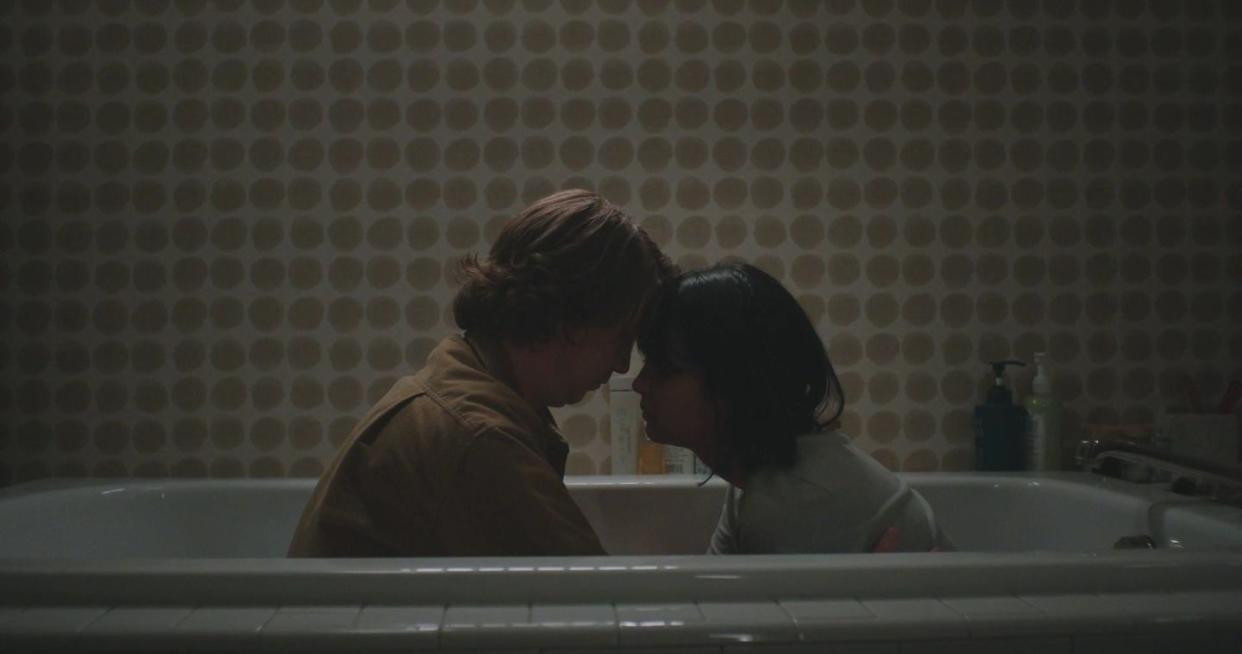
It feels very authentic, but in a line like, "I wish I could feel differently," you can see how Parachute also has a wider appeal that anybody could relate to. Was that important for you that all types of viewers could relate to it?
Definitely, that was a huge part of my wanting to do this movie and the impetus to start it.
I think a lot of people think that eating disorders, or body dysmorphia, or that sort of category of mental health, is so foreign, and is seen as vain or self-centred. What I really wanted to showcase, which I don't know has been done very often, is that, really, body obsession is very much another form of addiction like alcohol or drug use or mental health in general.
People do all sorts of things to not feel their feelings, whether it be social media, or different people, or shopping, or gambling. That's why I wanted to make sure that this feeling of people wanting to leave their body, because they're so uncomfortable with just the human experience, is something that's very universal – and this just happens to be about a girl's one way of doing that.
But we all do this in so many different ways. I think the biggest compliment that I get is when people watch the movie that don't have any experience with eating disorders or body dysmorphia, and they understand that it is a universal feeling.
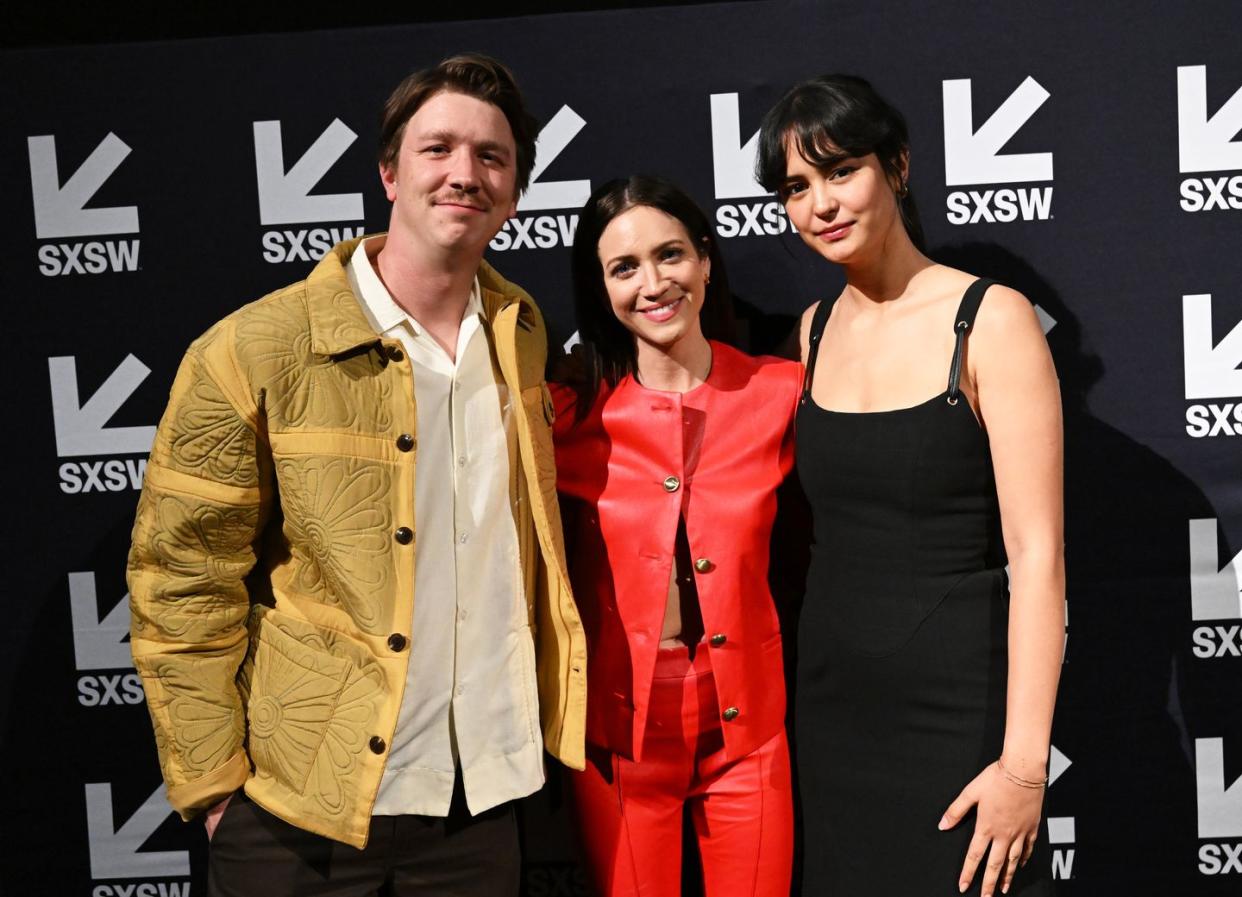
Courtney Eaton is just sensational in this. We knew she was great from Yellowjackets, but it's a very different type of role here. What was it about her that saw her cast as Riley?
It was a very unconventional way of finding her. It was such a hard thing to cast. I kept saying to my producers, "This is such a strange thing to want to find: someone who is inherently sparky". You have to be able to follow her, and root for her, regardless of the very selfish things that she's doing with her addiction.
I didn't want to glorify the fact that just because she was the main character, she had to be inherently likeable. When you're going through addiction, you do things that you truly don't want to do because your addiction is taking over, whether you're a selfless person or not.
And so finding someone who you're rooting for, regardless of their decisions, is very difficult. But how I found her was she's actually friends with the real Ethan. There's a real Ethan, his name is Michael, and Michael was friends with a group of people that knew her.
So I just said to my casting director and my producer, "There's this girl that I know in a circle of friends, and she's on Yellowjackets now. Her name is Courtney Eaton. I think we should try to see if she would be into reading or something."
I met with Courtney, and we just had a general meeting to talk about the part. From the very beginning of meeting her, I knew that she was going to be Riley because she and I have very similar ways of speaking. We're very self-deprecating – I mean, it's weird for me to talk about myself in this way – but there's this sort of manic, trying to make the other person feel comfortable, but being self-aware.
I just realised that that's such a hard thing for me to be able to find and I just fell in love with her. I knew that she could do it. We had a one-on-one reading where it was just me and her. She was just incredible. She was the easiest person that I've ever worked with. We collaborated so well, and I just love her dearly. The things that I made her do – she was so brave.
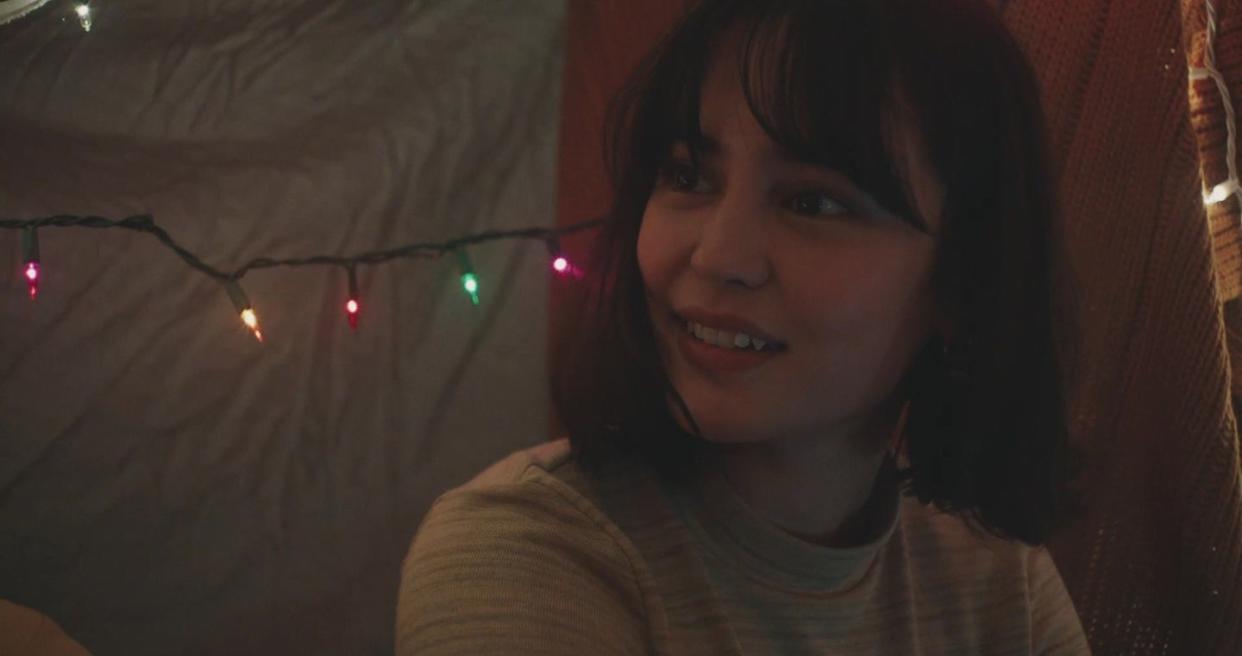
One of your most impactful decisions was to have quick edits that give you a glimpse into what Riley's thinking, such as when she's meeting her ex's new girlfriend. Was that an editing idea you had from the beginning?
I always had that in my mind when I was writing it. I think a huge part of this movie was trying to make people understand the feeling of being inside someone's head, but not doing in a didactic, health-class movie sort of way, either.
So trying to find those moments that were really visceral, and could put you there without explaining it, was really important to me.
Anybody with an eating disorder or body dysmorphia will tell you that that's very true to how you walk around the world. You're not necessarily sizing up somebody because it's about them – it's about you. It's about how you compare yourself to the world around you, and that's how you find out who you are.
Another cliché that Parachute avoids is that it shows there is no easy fix to what Riley is living with. How important was it for you that we know we're only seeing part of Riley's journey?
I feel like there's a real lack of movies that showcase people that want to live, and not necessarily just be all about the rehab or the fall. There's so many movies about that type of addiction. I just don't think it's very interesting to see people in rehab.
It's important, but I think what's really beautiful is the need to live through having an addiction, and falling in love, and going to the grocery store, and doing things that are just very mundane. I think that people who are living through an addiction have to do them, and that's sometimes the most heartbreaking part.
So I wanted people to realise that that's not something that ever goes away. I have 15 years of recovery from what you see in the movie. Anyone with any sort of addiction would attest that this an ongoing way of thinking, and that's what makes it worthwhile. It's that it never ends.
Parachute is out now in limited US cinemas. Its UK release date has yet to be confirmed.
Beat is a charity which raises awareness and understanding of eating disorders, and supports those affected by them. It has a one-to-one secure messaging service, and details of its phone helplines can be found here.
For more on body dysmorphic disorder, including information and support, please visit NHS Choices (www.nhs.uk), MIND on 0300 123 3393 (www.mind.org.uk) and The Body Dysmorphic Disorder Foundation (www.bddfoundation.org).
You Might Also Like
